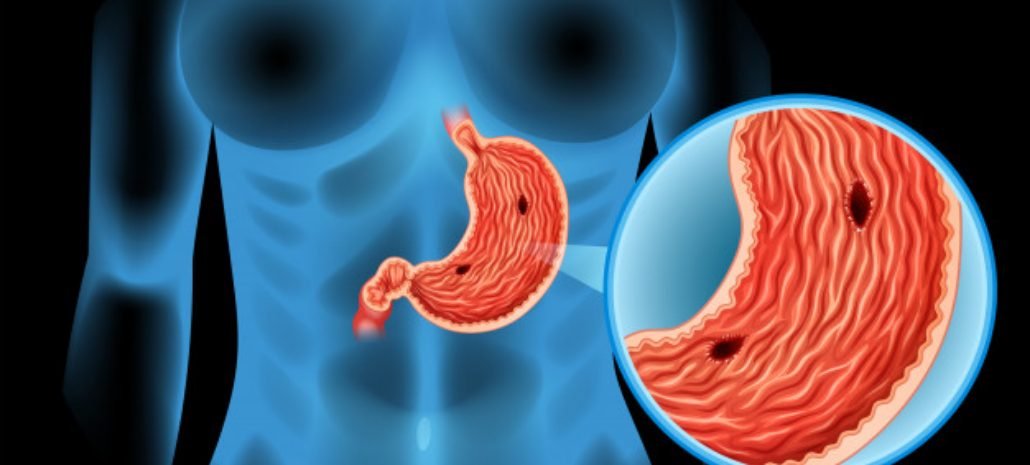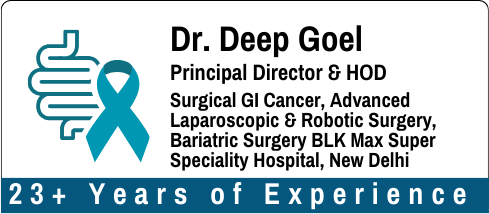Top 10 Possible Warning Signs of Stomach Cancer: Don’t Ignore These

Stomach cancer, also known as gastric cancer, is one of the most common cancers worldwide. What makes it dangerous is that its early symptoms are often mistaken for minor digestive issues like indigestion, bloating, or acidity. By the time patients seek help, the disease is usually advanced.
According to the World Health Organization (WHO), more than 1 million new cases of stomach cancer are diagnosed every year globally. Early detection is the key to survival; the 5-year survival rate is over 70% in early stages. That’s why recognizing the warning signs of stomach cancer is so important.
In this blog, we’ll explore the 10 most common symptoms, why they occur, when to see a doctor, and how you can lower your risk.
Understanding Stomach Cancer
Before we dive into symptoms, it’s helpful to understand what stomach cancer is.
- What it is: Stomach cancer occurs when abnormal cells begin to grow uncontrollably in the lining of the stomach. The most common type is adenocarcinoma, which develops in the mucus-producing cells of the stomach lining.
- Why it matters: It often spreads silently to nearby organs (liver, pancreas, oesophagus).
- Who is at risk: People with a family history, chronic H. pylori infection, high intake of salty/smoked foods, smokers, and heavy drinkers.
Dr. Deep Goel emphasises, “The challenge with stomach cancer is that its early signs look harmless. Patients often treat them as routine digestive problems, which delays diagnosis. Awareness is the first step toward saving lives.”
Top 10 Possible Warning Signs of Stomach Cancer
Here are the 10 key stomach cancer symptoms that should never be ignored:
1. Persistent Indigestion or Heartburn
Many people experience indigestion after overeating or eating spicy food. However, when indigestion or acid reflux becomes chronic, it could be a red flag.
- Cause: Tumours irritate the stomach lining, creating sensations similar to acid reflux.
- Symptoms: Burning sensation, upper abdominal discomfort, or constant bloating.
- When to worry: If indigestion lasts for more than 2–3 weeks despite treatment.
A patient of Dr. Deep Goel shared, “For months, I thought indigestion was just stubborn acidity, but when it didn’t go away, I finally visited Dr. Deep Goel, and tests revealed early-stage stomach cancer. Thanks to timely endoscopy and treatment, my condition was diagnosed early, and today I’m living a healthy life again.”
2. Unexplained Weight Loss
Sudden, unintentional weight loss is one of the most common early signs of stomach cancer.
- Cause: Cancer alters metabolism and reduces nutrient absorption.
- Warning Sign: Losing more than 5 kg in a short time without diet or exercise changes.
- Why it matters: Rapid weight loss is strongly associated with gastric and other cancers.
3. Loss of Appetite or Feeling Full Quickly
If you feel full after eating just a small amount, it could be more than a digestive issue.
- Why it happens: Tumours can reduce the stomach’s capacity and interfere with digestion.
- What to notice: Reduced interest in food, feeling full after a few bites.
- Impact: Leads to malnutrition, weakness, and worsens weight loss.
4. Nausea and Vomiting
While occasional nausea may be linked to food or infections, persistent nausea is concerning.
- Why it happens: Tumours obstruct the stomach outlet or irritate its lining.
- Red flags: Frequent vomiting, sometimes with blood that looks like coffee grounds.
- When urgent: Vomiting blood is a medical emergency.
5. Stomach Pain or Discomfort
Abdominal pain is often dismissed as acidity or ulcers, but in some cases, it can signal cancer.
- Why it happens: Tumour growth irritates the stomach walls and surrounding nerves.
- Location: Usually in the upper or middle abdomen, dull or sharp.
- When to act: If stomach pain persists for more than 2–3 weeks.
Dr. Deep Goel explains, “Many patients ignore stomach pain, thinking it’s acidity. But pain that persists despite medicines needs medical evaluation. An endoscopy can make all the difference.”
6. Bloating After Meals
Bloating is common, but persistent bloating after small meals should not be ignored.
- Why it happens: Tumours can slow down digestion and delay emptying of the stomach.
- What to notice: Frequent bloating, discomfort, and fullness after light meals.
- Warning: If bloating is accompanied by weight loss or nausea, seek medical advice.
7. Fatigue and Weakness
Chronic tiredness that doesn’t improve with rest may point toward hidden internal problems.
- Why it happens: Stomach cancer often causes slow internal bleeding, i.e, anaemia.
- Signs of anaemia: Pale skin, dizziness, shortness of breath, persistent weakness.
- Why it matters: Fatigue from anaemia is one of the most overlooked gastric cancer symptoms.
Another patient shared, “I was losing weight rapidly and had constant fatigue, but I thought it was just stress. When I consulted with Dr. Deep Goel, he diagnosed stomach cancer at an early stage. With his treatment plan and support, I underwent surgery and regained my strength. I’m truly grateful for his expertise.”
8. Blood in Stool
Blood in stool is always a warning sign and should never be ignored.
- Appearance: Stools may look dark, tarry, or visibly mixed with blood.
- Cause: Internal bleeding from tumours in the stomach lining.
- When to act: Immediate medical evaluation is needed to confirm the source.
9. Difficulty Swallowing (Dysphagia)
Though more commonly linked with oesophageal cancer, difficulty swallowing may occur in stomach cancer, too.
- Why it happens: Tumors near the stomach’s upper part block food passage into the esophagus.
- What to notice: Food feels stuck, painful swallowing, or a choking sensation.
- Warning: This is often a sign of later-stage disease.
10. Jaundice (Yellowing of Skin and Eyes)
Jaundice can occur if stomach cancer spreads to the liver.
- Why it happens: Tumours block the bile ducts, causing yellowing of the skin/eyes.
- Other signs: Dark urine, itchy skin, abdominal swelling.
- Why urgent: Jaundice is often a sign of advanced stomach cancer requiring immediate care.
Why Are These Warning Signs Often Missed?
Early warning signs are frequently missed as they mimic everyday problems like acidity or bloating. They can:
- Overlap with common digestive issues: Most people think it’s acidity, ulcers, or food intolerance.
- Symptoms come gradually: Unlike sudden illnesses, gastric cancer develops slowly.
- Self-medication masks signs: Antacids, home remedies, or OTC drugs often delay diagnosis.
Dr. Deep Goel advises, “If digestive symptoms persist beyond 2–3 weeks, don’t ignore them. A simple endoscopy can find out serious conditions, including stomach cancer.”
When to See a Doctor?
You should consult a medical professional if:
- Indigestion or bloating persists despite treatment
- There is unexplained weight loss or loss of appetite
- You see blood in vomit or stool
- You experience fatigue that doesn’t improve with rest
Diagnosis Methods May Include:
- Upper endoscopy – A thin tube with a camera to view the stomach
- Biopsy – Testing stomach tissue for cancer cells
- Imaging tests – CT scan, MRI, or PET scans to detect spread
- Blood tests – To check anaemia or tumour markers
Reducing the Risk of Stomach Cancer
Healthy habits can reduce risk significantly:
- Eat a balanced diet – Rich in fruits, vegetables, and whole grains
- Limit processed, smoked, and salty foods – These increase cancer risk
- Treat H. pylori infections – A significant cause of gastric ulcers and cancer
- Quit smoking and reduce alcohol intake – Both are strong cancer risk factors
- Maintain a healthy weight – Obesity is linked with several GI cancers
- Get regular screenings – Especially if you have a family history
Key Takeaway
The warning signs of stomach cancer can be subtle at first, but paying attention to your body can save your life. Persistent indigestion, unexplained weight loss, early satiety, fatigue, or blood in stool should never be dismissed as minor issues.
Early detection means better survival. If you notice these symptoms lasting more than a couple of weeks, seek medical advice. By staying aware, acting early, and living a healthy lifestyle, you can reduce the risk of stomach cancer and improve outcomes.
FAQs about Stomach Cancer
1. What is the most common age for stomach cancer?
Stomach cancer is more common in people over 50, but it can occur at younger ages,
especially if there is a family history of gastrointestinal cancer or chronic H. pylori infection.
2. Is stomach cancer curable if detected early?
Yes. When diagnosed at an early stage, stomach cancer is highly treatable with surgery, and the
survival rate is over 70%. That’s why timely diagnosis is crucial.
3. Is endoscopy painful for stomach cancer diagnosis?
Endoscopy is generally not painful. It may cause slight discomfort, but most patients undergo
with sedation, making the procedure safe, quick, and tolerable.
4. What is the cost of stomach cancer treatment in Delhi?
The cost depends on the stage and treatment type. Early surgery may cost around INR 4,00,00
and INR 5,00000 ($ 7,000 and $ 8,000), while advanced treatment can be higher.
5. Can stomach cancer come back after treatment?
Yes, recurrence is possible. That’s why regular follow-ups and scans are essential after treatment.
Explore more blogs: Does Spicy Food Cause Stomach Cancer? Separating Fact from Fiction

